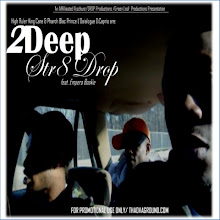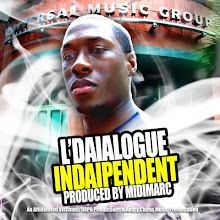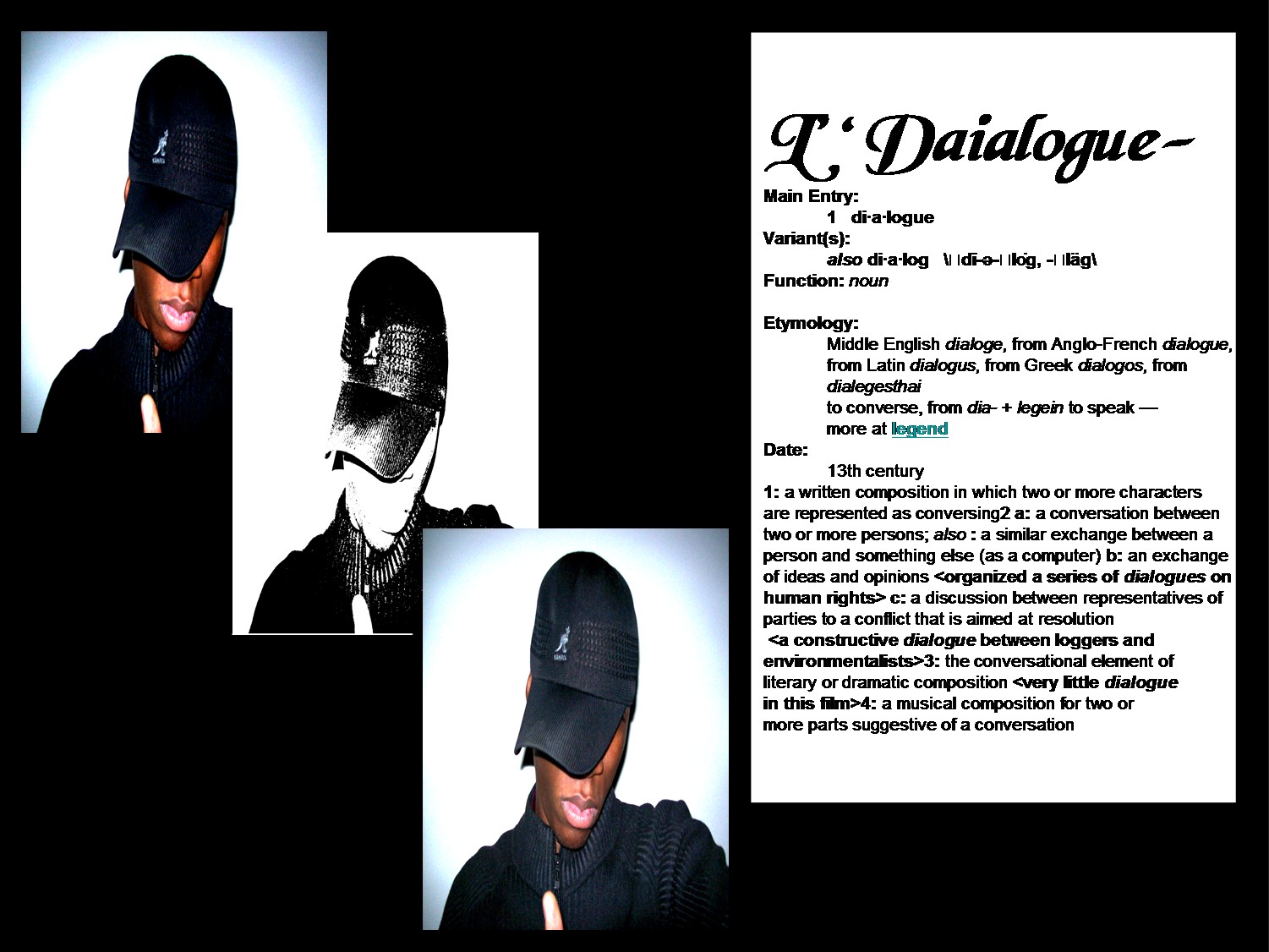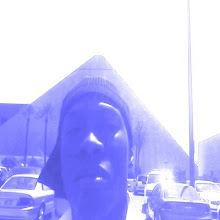
On the site, www.newsblaze.com, Gladys Knight had some interesting things to say about the current state of Hip-Hop.
[Please ask her] How has hip-hop changed the nature of black music?
GK: [LOL] Well, it's been good as far as giving young artists an opportunity to get out there. But, it's been bad, in my opinion, as far as the quality of the music and the stories that they tell. It's one thing to be raw about your history, but they took it to another level and it became vulgar. It has not elevated our industry musically, and it definitely has not elevated us as African-Americans, because we show disrespect for our partners, men and women. I believe we have lowered our self-esteem with these performances and presentations.

Now with that broad sweep of the whole culture, Little Brother producer 9th Wonder wrote a rebuttal courtesy of Allhiphop.com :
Dear Editor,
I recently read the legendary Gladys Knight's comments about Hip-Hop and the culture thereof as it pertains to hindering the growth of black music. In a lot of ways, present day black music in a general sense is in a very bad state. From Hip-Hop to the level of R&B and Soul or the lack of in mainstream media, we are seemingly suffering across the board. However, my concerns are focused on the comments about Hip-Hop.
Once AGAIN, the attempt to separate the generations amongst us as black Americans is having much success. In dealing with the older generation of our people, our elders refuse to see or seek the GOOD facets of Hip-Hop, or even the cultural aspects of Hip-Hop when it comes to improvisation, creativity, research, and skill. The fact that TRUE Hip-Hoppers respect, glorify, and honor the great ones who came before us in our records, and the use of what we call "samples" speaks volumes. A lot of musicians I've spoken with such as Michael Henderson, Gamble and Huff, Robert Allred from the Dynamic Five, and Leon Sylvers understand the BRIDGE we are building between generations. The reason I now listen to Bobby Bland, Mandrill, Billy Paul, The Dells, The Drells, Choice Four, The Undisputed Truth and countless other 60's and 70's greats, and why my 60 yr old brothers and sisters listen to it have two totally different paths.
Looking at my life as a 34 year-old and being from the South, my parents believed that anything outside of James Cleveland was secular. So an abundance of 70's soul, even Gladys Knight and the Pips, was not played in my house. Hip-Hop was the way that I found all of these artists, traveling the world and collecting records. I learned my history of black music through a vessel that a lot of my elders see as vulgar and offensive in a GENERAL sense. Hip-Hop was not always that way. In 1976, Afrika Bambaataa started the Universal Zulu Nation in the Bronx, New York, to give a creative outlet to rival gangs. However, today our law enforcement believes that hip-hop incites gang violence.
It was because of artists like Public Enemy, KRS-One, Brand Nubian, and A Tribe Called Quest that I heard names such as Carter G. Woodson, Medgar Evers, Steve Biko, Kwame Toure', Marcus Garvey, Fannie Lou Hamer, Shirley Chisholm, or ANYBODY outside of Martin Luther King and Harriet Tubman in public schools. These artists spoke about our elders in song, whether using the funk and soul records, or telling stories and mentioning names. From 1988 to 1993, black teens' enrollment in college, especially HBCUs, rose to 45% because of the nature of the arts; from the African Medallions, to the Malcolm X t-shirts, the African-American College Alliance shirts Martin Lawrence wore on Def Comedy Jam, to School Daze, to the most powerful hour in black TV, The Cosby Show and A Different World. "Droppin' Knowledge" if you will was made to be a "cool" or "in-crowd" thing. Unfortunately, the powers that be were against Hip-Hop being used as a NEW vessel to open the eyes of black kids and remind them to honor the struggles of the Civil Rights Movement of the 60's. It is very odd that around the same time, a more negative form of hip-hop was being PUSHED to the forefront, so our elders could turn their heads away from what we were REALLY trying to say, and divide us as ALWAYS.
Our elders turned away from our younger generation, which resulted in a lack of understanding of the TRUE essence of the Hip Hop art form. Subsequently, this led to resentment amongst the younger generation. The younger generation speaks- if there is no patience to understand our voice, then why should we try to learn where we came from? This only widens the divide.
HOWEVER, the true essence of what hip-hop was built on was and STILL is the tie that binds. We must learn and understand that the true version of ANY art form is not and will NEVER BE displayed in the mass media. As a result, it will stay "underground," or stolen from us. Do we actually believe that those same powers that control radio stations want our children educated through an emcee or an R&B singer who could inspire social change amongst the youth?
Do we actually think that those powers want the two, now three generations to be united and have a full understanding of each other's side of the story? I agree that YES the present state of hip-hop on THESE SAME AIRWAYS are less desirable; the same way the blacks who survived the Ragtime, Great Depression and Big Band Jazz looked down upon the black exploitation films of the 70's, your Fred Williamson movies, Ohio Players Album Covers, or the language on Millie Jackson records.
Let's pray that my generation loses the feeling of resentment, and at the same time, my elders take the time and patience to seek the GOOD messages and highlight the BEAUTIFUL things about Hip-Hop that mass media WILL NOT show you. Otherwise, we as a race will always be divided, and once again, they will have succeeded in their mission.
Here is a verse from the Hip-Hop song entitled "You Must Learn" as performed by Boogie Down Productions (KRS-One), from the album "The BluePrint" released in 1989. This verse was one of the key reasons why I went to college:
"I believe that if you're teaching history
Filled with straight-up facts, no mystery
Teach the student what needs to be taught
'Cause black and white kids both take shots
When one doesn't know about the other one's culture
Ignorance swoops down like a vulture
'Cause you don't know that you ain't just a janitor
No one told you about Benjamin Banneker
A brilliant black man that invented the almanac
Can't you see where KRS is coming at
With Eli Whitney, Haile Selassie
Grandville Woods made the walkie-talkie
Lewis Latterman improved on Edison
Charles Drew did a lot for medicine
Garrett Morgan made the traffic lights
Harriet Tubman freed the slaves at night
Madame CJ Walker made a straightenin' comb
But you won't know this if you weren't shown
The point I'm gettin' at, it might be harsh
'Cause we're just walkin' around brainwashed
So what I'm sayin' is not to diss a man
We need the 89 school system
One that caters to a black return
Because you must learn."
Today, ANY type of revolution, even in SONG...will never by televised.....
Peace, Love, Soul, and Hip-Hop,
Professor Patrick Douthit, aka 9th Wonder
Grammy Award Winning Producer/DJ/Lecturer
National Ambassador for Hip-Hop Relations and Popular Culture-NAACP
























.jpg)
.jpg)
.jpg)


No comments:
Post a Comment